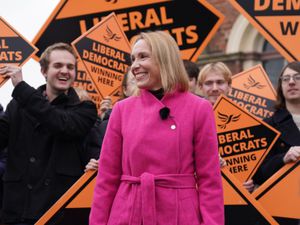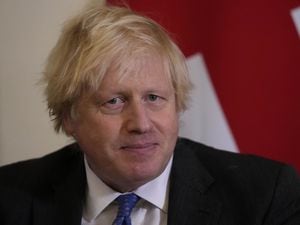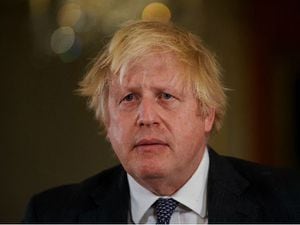What did Owen Paterson do? Why North Shropshire is holding a by-election
The voters of North Shropshire have elected their first non-Tory MP for more than 100 years.
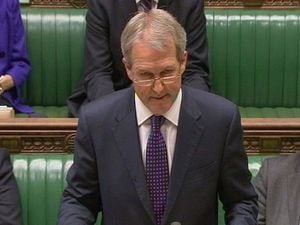
And for the first time in more than two decades, Owen Paterson was not among the names on the ballot papers.
The once-senior Conservative, a former Northern Ireland Secretary, first won the seat in 1997 and held it with a healthy majority at every following election until 2021, but a swift and dramatic fall from grace earlier that year ended with Mr Paterson giving up his seat and quitting politics after a lobbying scandal.
But what exactly was Owen Paterson investigated for, and why did he resign in disgrace?
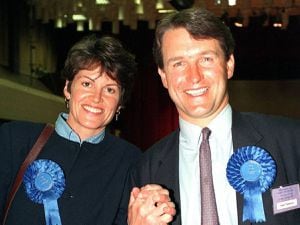
Who was Owen Paterson lobbying for and how much did he earn?
Alongside his work as an MP, Mr Paterson had been a part-time consultant for healthcare company Randox (since 2015) and sausage distributor Lynn's Country Foods (since 2016), both based in Northern Ireland.
As of 2021 he was being paid £8,333 by Randox for 16 hours work each month and £2,000 for four hours work every other month by Lynn's. That made an annual total of £99,996 from Randox and £12,000 from Lynn's, in addition to the £81,932 salary and expenses money he received as an MP.
Why did he get into trouble in 2021?
In 2019 the Guardian newspaper reported that Mr Paterson had lobbied the Government on behalf of Randox and Lynn's, promoting their products and trying to secure contracts.
House of Commons rules state that an MP may lobby on behalf of a paying client, but must not help to give an exclusive financial benefit to the client, and the client must not have initiated the lobbying. As a result of the Guardian allegations the Parliamentary Commissioner for Standards, Kathryn Stone, launched an investigation into Mr Paterson’s behaviour. The report of that investigation was finally released on October 26 2021, and it was scathing - the commissioner found that Mr Paterson had broken the lobbying rules in “an egregious case of paid advocacy”.
The report's conclusion said: "Previous instances have led to suspensions of 18 days, 30 days and six months. Each of Mr Paterson’s several instances of paid advocacy would merit a suspension of several days, but the fact that he has repeatedly failed to perceive his conflict of interest and used his privileged position as a Member of Parliament to secure benefits for two companies for whom he was a paid consultant, is even more concerning. He has brought the House into disrepute. We therefore recommend that Mr Paterson be suspended from the service of the House for 30 sitting days.
"The breaches, taken together, reflect a pattern of behaviour where Mr Paterson failed to observe a clear boundary between his outside commercial work and his parliamentary activities. No previous case of paid advocacy has seen so many breaches or such a clear pattern of confusion between the private and public interest."
What did Owen Paterson say in his defence?
Mr Paterson rejected the Commissioner’s findings, accusing her of making up her mind before she had even spoken to him and that the investigation had been a contributing factor in the suicide of his wife, Rose. He also said that witnesses he had wanted to give evidence had not been invited to speak to the investigators.
He maintained that he did nothing wrong and said he was acting in the public interest by raising legitimate concerns about food and health standards.
Did Boris Johnson support Owen Paterson?
With the commissioner declaring in no uncertain terms that Mr Paterson had broken the rules and should be suspended from the House of Commons, the onus was on the Government to act. But Prime Minister Boris Johnson stood by the North Shropshire MP, and rather than suspend him, top Tories backed an amendment to set up a new committee to look into the way in which MPs are investigated. The amendment passed but anger in his own ranks and an absence of cross-party support forced the Prime Minister into another U-turn, and the front bench’s backing for Mr Paterson quickly melted away.
Before a fresh vote on his punishment could be held, Mr Paterson resigned his seat on November 4.
He said: "The last two years have been an indescribable nightmare for my family and me. My integrity, which I hold very dear, has been repeatedly and publicly questioned. I maintain that I am totally innocent of what I have been accused of and I acted at all times in the interests of public health and safety. I, my family and those closest to me know the same. I am unable to clear my name under the current system."
He also said he feared the suicide of his wife Rose in 2020 becoming "a political football".
After a further debate on November 16, Parliament passed a motion accepting the findings of the original report that recommended he be suspended. Before long a by-election was called. The polls opened on December 16.
Who was in the running to replace Owen Paterson as North Shropshire’s MP?
Mr Paterson’s resignation put North Shropshire in the national spotlight, and no fewer than 14 people threw their hats into the ring to succeed him. Running alongside the challengers from the Liberal Democrats, Labour and the Green Party were a number of independents, Alan ‘Howling Laud’ Hope of the Official Monster Raving Loony Party and a Boris Johnson impersonator calling himself ‘Boris Been-Bunged’, who partied with voters in Market Drayton ahead of the poll.
The Liberal Democrats and Labour both said they were the real favourites to unseat the Conservatives, who selected Birmingham-based barrister Dr Neil Shastri-Hurst to fight the election. North Shropshire was traditionally a safe Tory seat, but the lack of a local candidate raised some Conservative eyebrows while the Lib Dem candidate Helen Morgan campaigned relentlessly - and bookmakers installed her as the favourite to win after weeks of scandal in Downing Street hurt Tory credibility.
Meanwhile Labour and their Oswestry-born candidate Ben Wood insisted he was the real opposition option, and he spent time speaking with locals in North Shropshire’s market towns throughout the campaign.
Though the odds fluctuated in the final few hours, the bookies had got it right first time and the Lib Dems completed an historic victory. A swing of 37.2 per cent saw Mrs Morgan win with 17,957 votes while Tory candidate Neil Shastri-Hurst finished second with 12,032 and Labour’s Ben Wood was third with 3,686.
Labour didn’t take North Shropshire in the end - but the fact that the Tories were toppled marked a seismic shift in a hitherto safe Conservative seat.
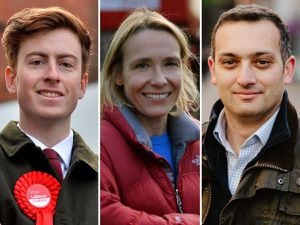
The problems didn’t end there for Boris Johnson’s beleaguered Government - a series of scandals and questions about the Prime Minister’s judgment contributed to bruising by-election losses for the Conservatives and meant support from within his party drained away over the next half a year.
Shock resignations from heavyweight Tories including Chancellor Rishi Sunak and Health Secretary Sajid Javid in early July 2022 triggered a wave of others, culminating in a standoff at No 10 in which several senior ministers including former allies told Mr Johnson his position was untenable.
Though he clung on through those confrontations, ever-dwindling support meant that the very next day he had to face the music and announce he would be stepping down himself.
And the Owen Paterson affair contributed in no small way, with several of those who resigned citing the Prime Minister’s handling of the scandal in their letters of apology. They included the Solicitor General Alex Chalk and the Justice Minister Victoria Atkins.


